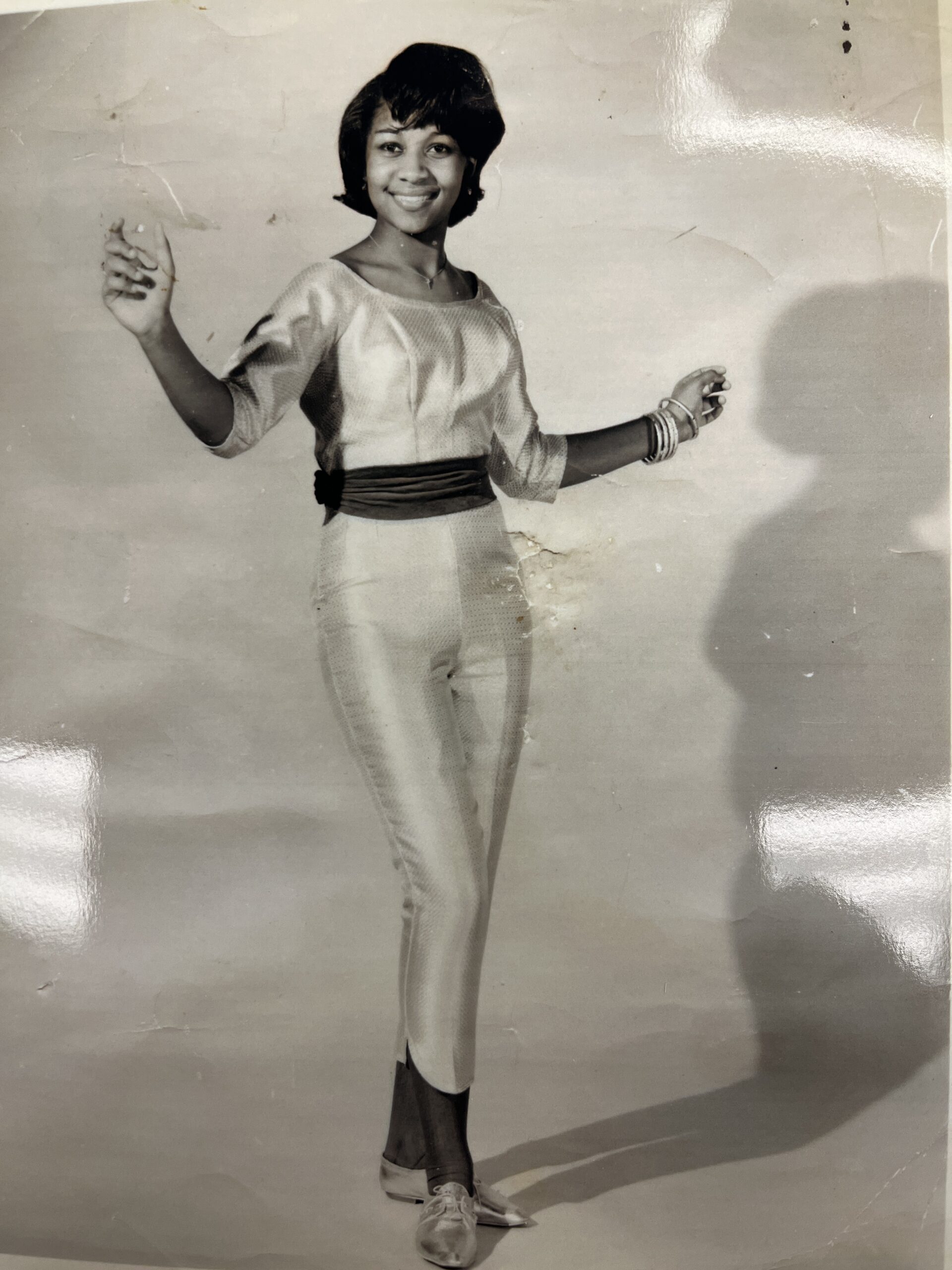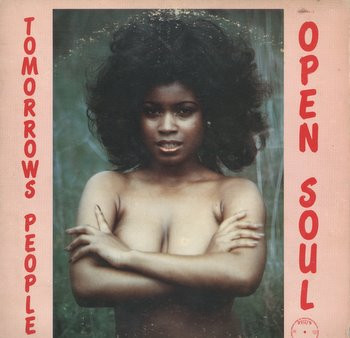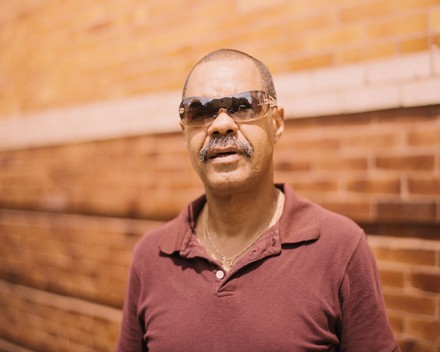
From Argo to the Airwaves: A Teen’s Vee-Jay Breakthrough
In this rare and intimate radio conversation on WHPK’s Sitting in the Park, Chicago soul artist Barbara Green recounts her meteoric rise in the 1960s with her debut single Young Boy. At just 13, Green—mentored by her godmother and gospel pioneer Lorenza Brown Porter—auditioned for Vee-Jay Records with a bluesy confidence well beyond her years. Her single, released on the Vivid imprint, became a regional hit and WVON’s “Pick of the Week.” This segment dives deep into her brief but powerful recording career, the influence of gospel on Chicago soul, and how her rediscovery decades later is renewing appreciation for her voice and story.
Bob Abrahamian 00:00
Okay, you are tuned to WHPK 88.5 FM in Chicago. You are listening to the Sitting in the Park show. Today’s show is going to be special because I have a Chicago soul music artist on the phone. I have Barbara Green, who cut the record Young Boy, an excellent Chicago soul record from the mid-60s. She’s going to be talking about herself and her musical career. So, can you hear me?
Barbara Green 00:36
Yes, I can.
Bob Abrahamian 00:38
Okay, first of all, thanks so much for being on the phone and telling your story.
Barbara Green 00:42
Oh, you're very welcome. Thanks for having me.
Bob Abrahamian 00:45
Are you originally from Chicago?
Barbara Green 00:46
I'm originally from a small southwestern suburb called Argo, Illinois, which begins at 63rd and Harlem.
Bob Abrahamian 00:55
That's near Summit, right?
Barbara Green 00:56
That's right. Summit is Argo.
Barbara Green 01:00
Some people hyphenate the name and call it Summit-Argo, Illinois. It got its name originally from Corn Products Corporation, which made Argo Starch. Years ago, it was just referred to as Argo, and over time, people started calling it Summit-Argo.
Bob Abrahamian 01:22
I never knew that. So it’s basically adjacent to Chicago—you’re not out in some far-off suburb.
Barbara Green 01:28
Right. When you cross over Harlem, you're in Chicago.
Bob Abrahamian 01:32
So how did you get started? How did you get involved with music?
Barbara Green 01:36
Well, I started singing at a very young age. I guess my story is like a lot of others—I started in church, Antioch Baptist Church in Argo, Illinois. I sang in front of people probably around the age of six.
My godmother, Lorenza Brown Porter, used to put on extravagant fashion shows back in the day, with bands like the Jimmy Smith Orchestra. I remember when I was six or seven, I asked her if I could sing. She was the type of person who never brushed off kids and said, “Of course—just go up and tell the band what you want to sing.”
I had seen a movie called Sentimental Journey and remembered the tune, though I didn’t remember the words exactly. I rehearsed with the band the night before her big show, and the next night my parents allowed me to sing. I performed my version of Sentimental Journey, even though the lyrics weren’t exactly correct.
From there, I just kept singing in church. My godmother was a founding member of the Argo Gospel Singers, who recorded professionally for Vee-Jay Records. They were the first Black gospel group to sing at the Apollo. She really nurtured my interest in music.
Around age 13, when I was in eighth grade, I told her, “I want to make a record.” She said, “If it's okay with your parents.” But I told her, “I don't want to sing gospel—I want to sing rock and roll.” I had grown up in gospel music, but I wanted to do something different. She said, “Well, get your band together,” and I did.
Bob Abrahamian 05:35
It was the pick of the week. So were you 13 years old when it was recorded?
Barbara Green 05:39
I had turned 14 when they released the record on the radio, but I was actually 13 when I recorded it.
Bob Abrahamian 05:47
So you were very, very young — which makes the song kind of funny, singing about how someone else is a "young boy," too young.
Barbara Green 05:55
Yeah! I had, I guess, a mature voice for my age. My godmother, Lorenza Porter, had heard me sing before, so she knew I had some ability. She didn’t interfere much with what I put together for the audition with James Bracken, who owned Vee-Jay Records at the time.
So I got some neighborhood kids together — the Pfizer brothers — one played lead guitar, one played bass, and I think we had a drummer. We rehearsed a few songs, and then my godmother took me downtown to audition for Vee-Jay.
Bob Abrahamian 07:54
And you had to get a band together just for the audition — you didn’t just go solo?
Barbara Green 08:04
Right, we were all very young. The Pfizer brothers and Arthur Manning — we all grew up together in the church. They played instruments in church, and we were already close. So I went to them and said, “Hey, I’m trying to audition. Miss Lorenza is taking me, and I need at least three songs ready.”
We rehearsed, and the only song I can really remember from that audition was a blues tune — definitely a bit mature for a 13-year-old to sing. But I sang it with so much feeling and maturity that I think it sealed the deal. Within a couple of days, I was in the studio rehearsing.
Bob Abrahamian 09:05
So when you say “a little much,” you mean it was a bit risqué?
Barbara Green 09:09
Yeah — I don’t remember who originally sang it, but the lyrics were like, “You got me runnin’, you got me hidin’.” My dad especially loved blues music, and I grew up listening to all these adult tunes around the house. So I had this mature voice and taste in music, even as a kid. I went in with three solid songs, and the maturity in my performance made a big impression.
Bob Abrahamian 09:52
Okay, well, let me play the record — your hit — and we can talk a little more afterward. So this is the first record you did, and it didn’t come out on Vee-Jay directly, right?
Barbara Green 09:52
Right. It came out on a subsidiary of Vee-Jay Records called Vivid. Mr. Bracken’s wife’s name was Vivian — that’s where “Vee-Jay” came from. So the sub-label was Vivid. I think another Vee-Jay subsidiary was Brunswick, but Young Boy came out on Vivid originally.
Bob Abrahamian 10:14
Okay, so here’s the record, and then we’ll talk some more.
Bob Abrahamian 13:17
Okay, that was Barbara Green with her hit Young Boy. And if you’re just tuning in, I have Barbara Green on the phone right now, talking about her recording career. So just before the break, we were discussing how she was only 13 when she recorded that song and how her godmother brought her to Vee-Jay Records. All of that must have happened pretty fast, right?
Barbara Green 13:35
Oh yeah — things just started to happen so fast, it was unbelievable. Especially for someone from a small town, like a little Mayberry-type town. When they released the record, they must’ve put a lot of promotional energy behind it because it became WVON’s "Pick of the Week." Every time you turned on the radio, you’d hear it.
People in Argo were amazed. You know, someone from this tiny town was being played all over Chicago radio.
Bob Abrahamian 13:59
Were you excited to meet the Dells and the other artists? Or had you met any of them before?
Barbara Green 14:05
No, I had never met any of them. I had met gospel stars, because my godmother was deeply involved in gospel, but I hadn’t met anyone from the pop side. I first met Richard Parker during rehearsals. A few days later, he brought in the Dells. After we recorded the songs and they were on the radio, I remember Richard Parker, Chuck Barksdale, and another member of the Dells actually came to my house in Argo for dinner on a Sunday.
They came to ask permission for me to perform at a club — I believe it was The Birdland on 63rd, off King Drive. My parents were hesitant, but Richard assured them I’d be safe — that I’d enter through the back, lip-sync my song, and leave with them. That ended up being my first public appearance after the record aired.
From there, I did sock hops with Herb Kent on the West Side at Our Lady of Sorrows. He did those every Friday night. I also started performing in theaters — like the Fox Theatre and venues in Michigan City, Indiana. It grew fast.
And I was just a freshman in high school! There was so much excitement. I joined the choir and the school play, and the record made me pretty popular.
Barbara Green 16:18
I even sold records at school — they gave me a box of 45s, and I sold them to my classmates. I ended up running for Freshman Homecoming Queen. Now, keep in mind, the school was about 95% white — so my friends said, “You’re not going to win, there’s never been a Black homecoming queen.” But that year, I was voted Freshman Queen! It was a very exciting time in my life.
I didn’t realize how many people were listening to Young Boy until much later in life. I found out it reached nearly No. 1 in some Southern states and ranked 17th on the Midwest soul charts.
Then, about six months later, I went to Vee-Jay’s studio and noticed something felt off. Everyone seemed sad. I found out the government had shut them down — supposedly for income tax evasion. And that kind of ended my musical career right there.
Bob Abrahamian 19:03
Yeah. But before we get to how Vee-Jay folded — one thing I noticed is your song sounds a lot like Hello Stranger. Not just because it’s a female lead with male backup vocals, but because it’s the Dells again. Was that song an influence?
Barbara Green 19:32
Actually, yes. I believe Richard Parker — who worked with me — also wrote for Barbara Lewis, including Hello Stranger. He’d also worked with Mary Wells. And when my record was released, a lot of people mistook me for Barbara Lewis — our voices are very similar, and the melodies were, too.
Bob Abrahamian 20:19
That Barbara Lewis record crossed over between soul and pop — it did really well. Do you know if your song crossed over?
Barbara Green 20:32
I’m not sure. But thanks to the internet, I recently learned that in 1968, all four of my songs were re-released on Rene Records. I just found that out a few weeks ago!
Bob Abrahamian 20:58
Right — the Philadelphia label. And they spelled your name differently, too.
Barbara Green 21:06
Yes! Someone on a blog mentioned that the record made it onto the Billboard charts in '68. I haven’t verified that myself. But it’s amazing to find people still remembering this 1964 song. I even found it posted by a guy in the UK. He said it’s popular among vinyl collectors over there.
Bob Abrahamian 22:03
Definitely! A lot of people in Chicago remember it — even non-collectors. Now, Vivid Records — Vee-Jay’s subsidiary — released a second single too, right?
Barbara Green 22:19
Yes, Our Love Is No Secret Now and A Lover’s Plea. They were recorded the same night as Young Boy. But I didn’t even know those other tracks were ever released until a few weeks ago!
Bob Abrahamian 23:05
Yeah — I have a promotional copy. I’m not sure if it ever made it to stores, but both sides are great.
Barbara Green 23:21
I’m especially fond of A Lover’s Plea. I think they might’ve withheld it because of my age — the lyrics are a little more grown-up than Young Boy, so I understand why it might not have been released at the time.
Bob Abrahamian 23:55
Well, let’s play A Lover’s Plea, and then we can talk more. This is Barbara Green with the B-side of her second single.
🎵 [music playing – A Lover’s Plea] 🎵
Bob Abrahamian 26:17
Okay, that was Barbara Green with A Lover’s Plea. So we were just talking about how all of these were recorded in the same session — and you didn’t even know they had been released?
Barbara Green 26:43
Not at all! I just found the songs on YouTube, posted by a collector from the UK. He also posted I Should Have Treated You Right, which he says is popular among collectors over there.
Bob Abrahamian 27:27
It was released on both Vivid and Rene, but it’s definitely harder to find than Young Boy. So, tell me more about how Vee-Jay just shut down.
Barbara Green 27:46
It was sudden. One day, all the biggest names — Jerry Butler, Barrett Strong, the Dells — were coming and going from the studio. Then, months later, the doors were just... closed. After that, I focused on finishing school and just being a kid.
Later, as an adult, I formed my own band and performed around Chicago — High Chaparral, Park West. I produced my own shows for a while.
Bob Abrahamian 30:20
Did you ever try to get another record deal?
Barbara Green 30:30
No, I didn’t. I just played clubs, kept a band together, and did my own thing.
Bob Abrahamian 30:39
What kind of music were you performing?
Barbara Green 30:44
Pop, rock and roll, jazz, even classical music — after attending the American Conservatory of Music, I expanded my range. I performed all kinds of music, even African music, and included younger artists in my shows.
Bob Abrahamian 31:50
And you said you did theater, too?
Barbara Green 31:56
Yes, in 1989 or 1990, I got a part in Big River, a musical about Huck Finn and the runaway slave Jim. It was at the Fox Theatre in St. Louis. I had just earned my degree in musical theater from Roosevelt University.
Bob Abrahamian 32:33
How long did that run?
Barbara Green 32:35
About 30 or 40 days. I left early, though — there was tension in the cast. They wanted to pad me in the costume to make me look like a stereotypical slave. I had a real conflict with that.
Bob Abrahamian 33:40
So you came back to Chicago?
Barbara Green 33:47
Yes. I started teaching theater with Chicago Public Schools and did afterschool programs in music and theater for about five years. But then arts programs started getting cut.
Bob Abrahamian 34:36
So did you switch to teaching something else?
Barbara Green 34:40
Yes. I went back to school and earned a degree in education. That pulled me away from music. I did enjoy it, though. And just recently, in July, I earned a master’s in Special Education. I’m now teaching in the Milwaukee Public School District.
Bob Abrahamian 35:31
When did you move to Milwaukee?
Barbara Green 35:32
About six years ago.
Bob Abrahamian 35:38
Have you thought about recording again?
Barbara Green 35:38
Actually, yes! Just recently, after seeing my music on YouTube and getting an email from a man who posted it, I got an offer — just this past Friday — to record again with a Philadelphia label. I haven’t accepted yet, but I’m seriously considering it.
Bob Abrahamian 36:20
That’s great. It’d be amazing for you to finally release new music after all these years.
Barbara Green 36:40
Thank you so much for remembering me. I was overwhelmed when someone said, “Call Bob — he knows your music.” I appreciate you playing my songs and sharing the story.
Bob Abrahamian 36:59
Absolutely. A lot of people in Chicago remember your record. Any final words for the listeners?
Barbara Green 37:07
Thank you all so much. I love Chicago. I’m only in “The Mill” — Milwaukee — temporarily. Chicago will always be home. Hopefully, you’ll hear from me again.
Bob Abrahamian 37:23
Okay, I’ll definitely keep folks posted. Thanks again — and I’ll be in touch.
Barbara Green 37:30
Thank you, Bob, for having me.
Bob Abrahamian 37:33
Take care. Have a good night.
Barbara Green 37:36
You too. Bye-bye.

